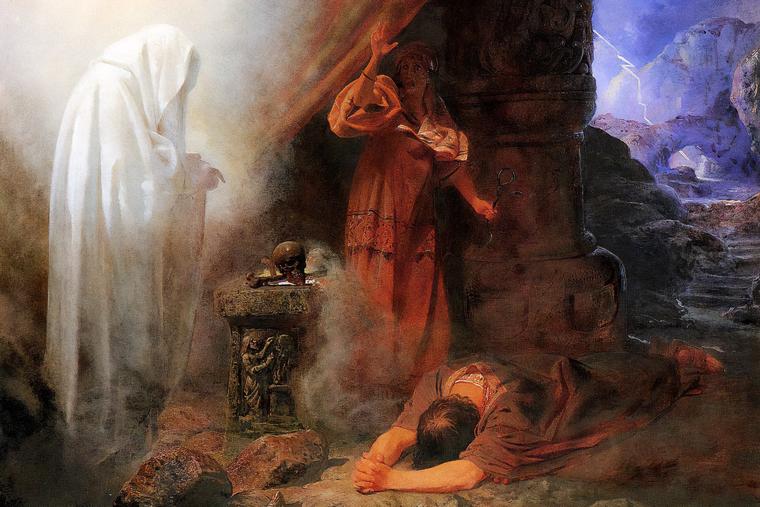Copyright ncregister

Jimmy Akin is the senior apologist at Catholic Answers, with more than 30 years of experience defending and explaining the faith, and co-host of the Jimmy Akin’s Mysterious World podcast. The Register recently asked him to explain Catholic teaching on ghosts and otherworldly phenomena. What does the Catholic Church officially teach about the existence of ghosts? The Church teaches the existence of human spirits, and the term “ghost” means the same thing as “spirit,” which is why the Holy Spirit is also called the Holy Ghost. Since human spirits exist, ghosts exist. A separate question is whether ghosts — other than saints — can appear to the living. On this, the Church has no teaching, though Christian experience throughout the centuries suggests that they do. Doctors of the Church like St. Thomas Aquinas have held that ghosts do appear to people. Are there any references to ghosts or spirits in the Bible that point to a contemporary belief in ghosts? In Matthew 14:26 and Mark 6:49, the disciples see Jesus walking on the water and think it is a ghost. In Luke 24:37, they think the Risen Jesus is a ghost. In none of these passages does Jesus tell them ghosts do not exist; in fact, in Luke 24:39, he tells them that “a ghost does not have flesh and bones, as you see that I have.” How have Church Fathers or saints spoken about encounters with spirits or the dead? The Church Fathers report various encounters with the spirits of the deceased. For example, around A.D. 203, the martyr Perpetua had visions of her deceased brother, Dinocrates, who she helped deliver from purgatory through her prayers. There are countless other examples throughout history. In the 1200s, St. Thomas [Aquinas] received two visions of his sister, the first to request his prayers, as she was in purgatory, and the second to announce that she had been translated to heaven through his actions. Are ghosts souls in purgatory who have “unfinished business”? The historical Catholic understanding has been that ghosts are souls experiencing purgatory. They may have various forms of unfinished business, including matters that concern themselves directly (e.g., disordered desires they are being purified of) and matters that concern them because of their relationships with others (e.g., letting the living know where a legal will is to be found since they failed to let their relatives know about it during life). How do we know the difference between a ghost and a demonic manifestation? Demons a) don’t like holy things, b) teach false doctrine, c) like to be worshipped, and d) harm and possess people. If these don’t characterize a spirit, it should be provisionally understood as a ghost rather than a demon. What guidance does the Church give to people who believe they’ve encountered a ghost? The Church does not have standard advice for people who have encountered ghosts. However, several pieces of advice are in order. First, do not too quickly conclude that something is a ghost; one may be misinterpreting a purely natural phenomenon. Second, if a spirit is manifesting, we should heed John’s advice: “Beloved, do not trust every spirit but test the spirits to see whether they belong to God” (1 John 4:1). Third, one may pray for the ghost, have Mass said for it, or seek to obtain an indulgence for it. And, fourth, one may seek to have the location where the ghost is manifesting blessed. One should also remember that, although ghosts may be startling and cause people to be anxious, we do not need to fear them. They are not here to hurt us. If one suspects that a spirit is not a ghost but a demon, one can contact a priest or exorcist, preferably one who has an open mind and does not automatically assume that everything unusual is a demon. Do you have any favorite Catholic “ghost stories?” The “Wizard Clip” is a famous incident that took place in what is now West Virginia in the early 1800s. A Catholic traveler died, without the benefit of a priest, on the property of a Lutheran family, and the ensuing manifestations ultimately led to the family’s conversion to the Catholic faith. I discuss the “Wizard Clip” in Episode 115 of Jimmy Akin’s Mysterious World.



